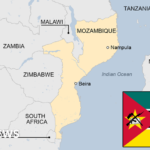
By Chinelo Obogo
Many Nigerians have abandoned plans of traveling to the United Kingdom for graduate school following a government policy shift aimed at curbing migration that came into force in January this year, Home Office data has revealed.
Nigeria makes up one of the UK's biggest groups of foreign students and in recent years brought more dependents, typically children and partners, than those from any other country globally.
Semafor reports that UK Home Office figures show the number of “main applicant” student visas granted to Nigerians in the first six months of 2024 was 4,669, compared with 14,772 in the corresponding period last year — a 68 per cent drop. The fall in Nigerian student visas granted — 10,103 — accounted for 43 per cent of the overall 23,565 fall in overseas student visas.
More skilled Nigerians now prefer choosing US and Canadian universities, causing a drop that has deepened a funding crisis in British universities. It's part of a broader drop in non-EU overseas students moving to the UK that has prompted panic in British universities, which rely on tuition fees from that group for nearly 20 per cent of their total income. Many universities now fear funding shortfalls amid concerns that international students will not return.
The Office for Students (OfS), the independent regulator of higher education in England, said in a report published in May that funding drying up could threaten the existence of some universities.
It warned that “there are risks” associated with relying on growth in international student numbers to underpin financial sustainability. “If providers are not able to evolve and adapt successfully to the changing financial landscape, there is a significant risk that some will become unsustainable,” it said, adding: “This could lead to individual providers leaving the higher education market.”
Britain has traditionally been the preferred destination for many Nigerian students, in part due to the lack of a language barrier, being in similar time zones, and the short flight between the two countries.
But the US and Canada have grown in popularity in the last few years.
The number of Nigerian students in Canada rose by 45,965 from 2022 to 2023 — a 113 per cent increase — according to the Canadian Bureau for international Education, a non-profit organization whose members include more than 100 higher education institutions.
A separate study, published by Canadian technology company ApplyBoard last November, found that Nigerians were Canada's fastest growing group of international students in the first half of 2023.
Canada has sought to increase its number of international students as part of a broader effort in recent years to increase immigration to counter its low birth rates and stimulate economic growth.















